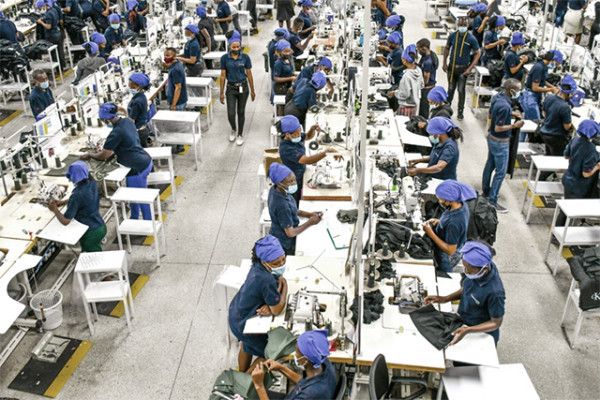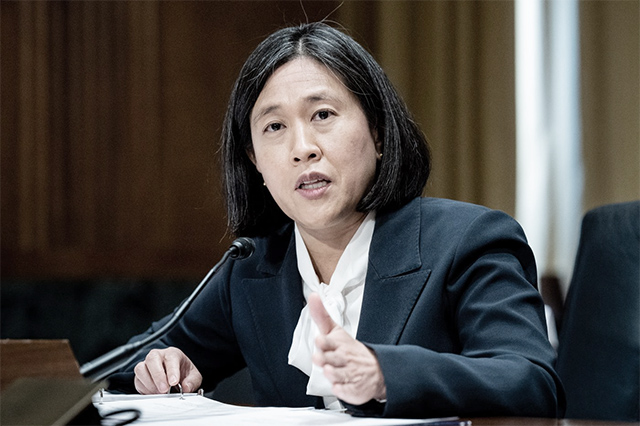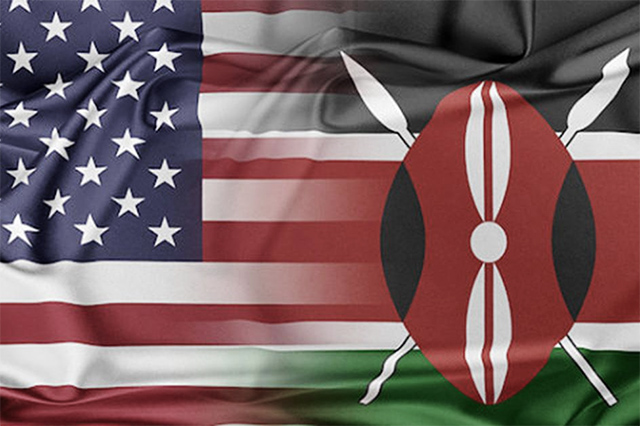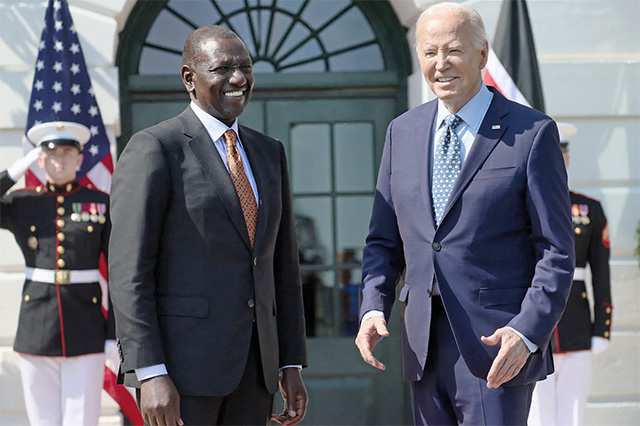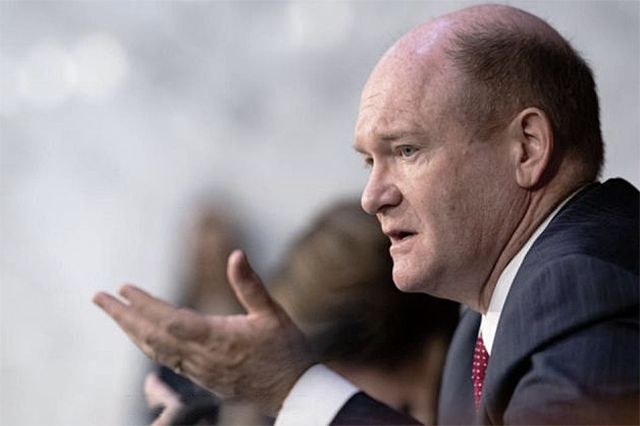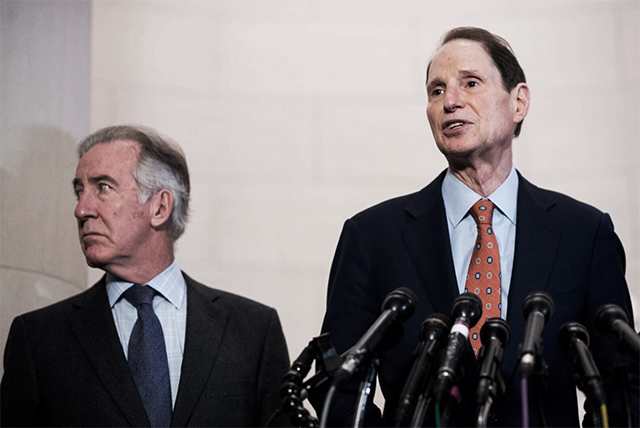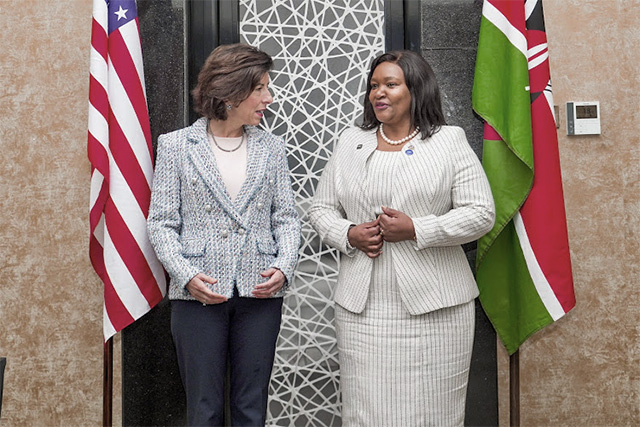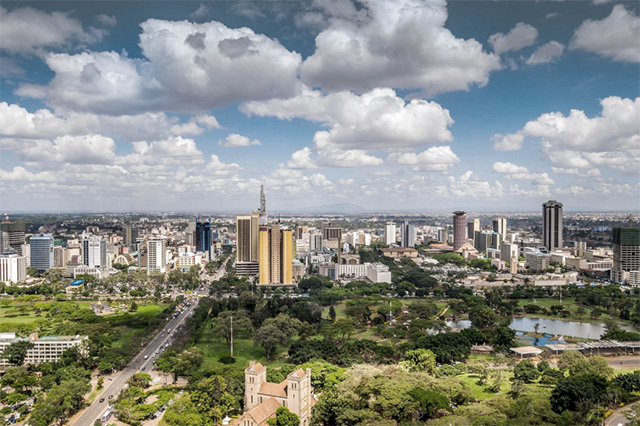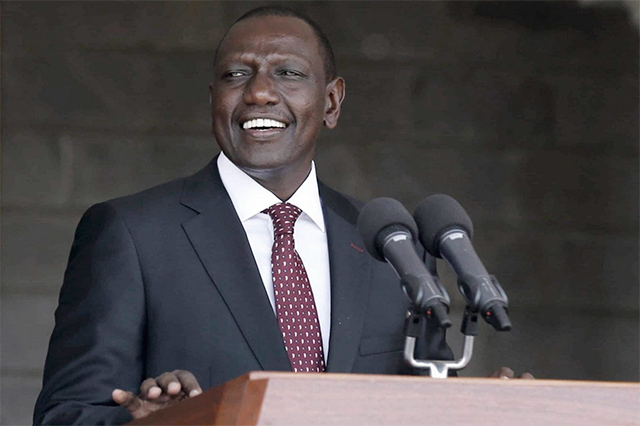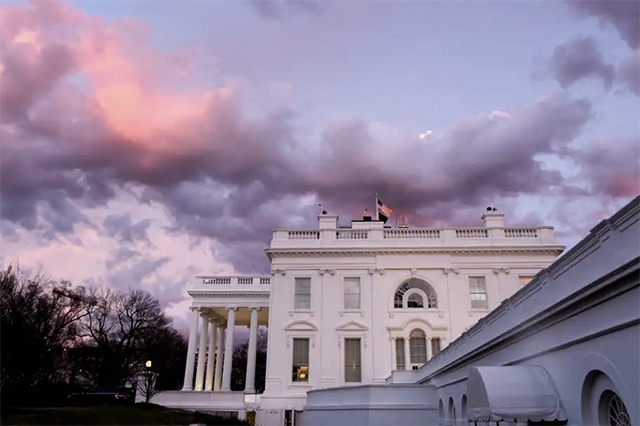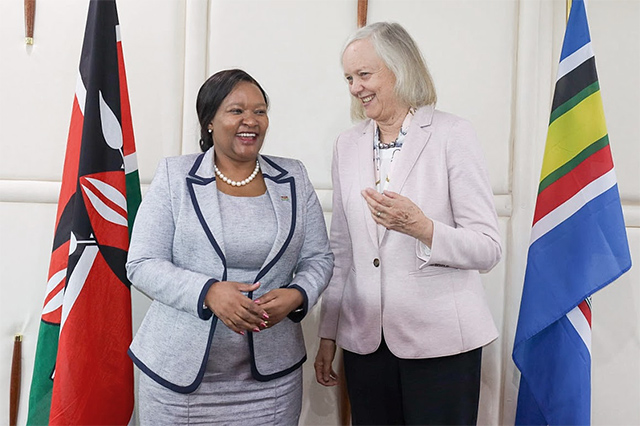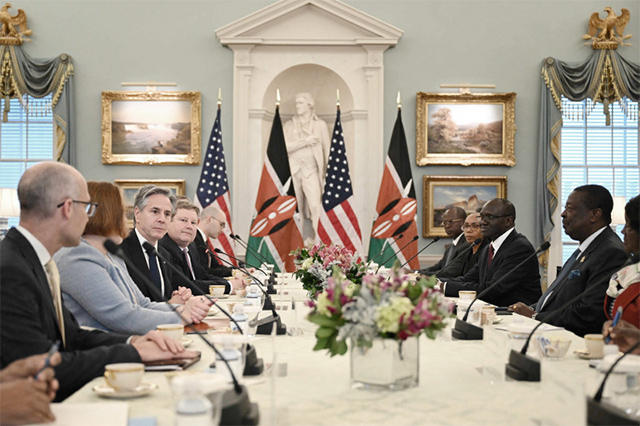Kenya-US trade agreement 'may need a rethink on workers'
The US and Kenya announced a trade and investment partnership in July 2022.
Talks have been progressing on the way forward in nine areas, including agriculture, anti-corruption, digital trade, environment and climate change action, and workers’ rights and protections.
The Strategic Trade and Investment Partnership (STIP) will be the first significant trade partnership between the US and a country in sub-Saharan Africa. Countries in the region currently rely on the African Growth and Opportunity Act (AGOA), which offers duty- and quota-free access to the US market.
The new deal is seen as a model for future agreements between the US and other sub-Saharan African countries.
The labour provisions proposed under the Kenya-US deal are not new. They have become standard features of all US free trade agreements since first appearing in the North American free trade agreement of 1994.
Kenya and the US undertake to work together “to advance and protect labour rights through enforcement of and compliance with labour laws, promotion of social dialogue, and cooperation in other areas of mutual interest on labour and employment priorities, including with respect to forced labour in global supply chains.”
There is currently very little information regarding the potential scope of the labour provisions. But there is reason to believe they will borrow heavily from precedents of the US-Mexico-Canada Agreement.
Under the USMCA, contracting parties commit to four core international labour standards. These are: freedom of association and collective bargaining; elimination of all forms of forced or compulsory labour; effective abolition of child labour; and elimination of discrimination in respect of employment and occupation.
I have recently authored a paper on the labour issues raised in the proposed free trade deal between the US and Kenya. I have also studied China’s bilateral treaties and reviewed its trade deals with African countries.
Ordinarily, a trade agreement that aims at promoting workers’ rights should be welcomed. Kenya faces numerous obstacles to effective protection of the rights of workers despite having many laws with this aim.
But the imposition of stringent labour standards via a trade agreement raises concerns about additional international obligations, high implementation costs, sovereignty, hidden motives, and an uneven playing field.
In my opinion, the inclusion of strong labour provisions in the STIP may have very little to do with protecting workers in Kenya. It may be more about sidelining China in Africa, protecting US jobs, and enhancing US soft power in the region.
International obligations
The controversy over the issue of trade and labour standards is not new. Nearly thirty years ago, developing countries rejected attempts by some industrial nations to subject labour standards to World Trade Organisation rules and disciplines. Introducing them through a free trade pact implies contracting states will be required to adopt and enforce global labour laws.
Including labour provisions in the STIP will have the effect of imposing additional commitments on Kenya beyond its current obligations as a member of the World Trade Organisation. Quite apart from the cost of implementation, imposing labour commitments through the backdoor of a trade agreement exposes Kenya to costly dispute settlement procedure and possible trade sanctions in event of a breach.
Sovereignty
The Kenyan parliament would likely play a very limited role in shaping the scope and content of the labour provisions of the trade agreement. In contrast, the US Congress plays a significant role in shaping the labour provisions of all pacts involving the US.
The limited input of Kenyan workers in the design of the labour provisions of the agreement is also a concern. By contrast, US workers and labour unions have had the opportunity to express their views on these issues. In its Strategic Plan FY 2022 – FY 2026, the United States Trade Representative (USTR) state that advancing a worker-centered trade policy “will require extensive engagement with unions, worker advocates, and underserved communities to ensure that workers’ perspectives and values play an integral and respected role in the development and implementation of U.S. trade policy.”
Hidden motives
It’s the US view that poor labour standards distort global markets and are a barrier to US businesses and workers competing on a level playing field.
The deal with Mexico and Canada prohibits them from importing goods from countries that use forced or compulsory labour, including forced or compulsory child labour. It provides for mandatory inspection of facilities to be sure of compliance in those countries.
Labour provisions in Kenya could therefore have a direct impact on its trade with China, member states of the East African Community and other African states. It could mean that entities that are neither American nor Kenyan are inspected.
Uneven playing field
While the US has the capacity and resources to monitor labour conditions in Kenya and to enforce relevant provisions of the STIP, neither the Kenyan government nor its private sector has the capacity to do so in the US. So the spotlight will be on Kenya while labour rights violations in the US are likely to be swept under the carpet.
Despite a plethora of laws and regulations purporting to protect workers in the US, violations are commonplace, particularly among migrant workers. Forced labour and human trafficking of migrant farm workers in the US is rampant.
Until recently, migrant workers in the US were coerced into continuing to work despite violations of their rights.
High implementation costs
The cost of implementing labour provisions is significant. Substantial resources will be required to amend laws, appoint and train inspectors, and monitor compliance. Maintaining good records, establishing labour-management committees and providing arbitration services comes with costs.
Under the deal with Mexico and Canada, a decision made by a Party on the provision of enforcement resources does not excuse a Party’s failure to comply to enforce its labor laws.
What next?
Workers are the bedrock of the global economy and deserve full protection. Including labour provisions in the STIP could transform Kenya’s labour laws.
It could also put pressure on China to take workers’ rights in Africa and Kenya more seriously.
Uche Ewelukwa Ofodile is Professor of International Law, Intellectual Property Law and Food Law, University of Arkansas


